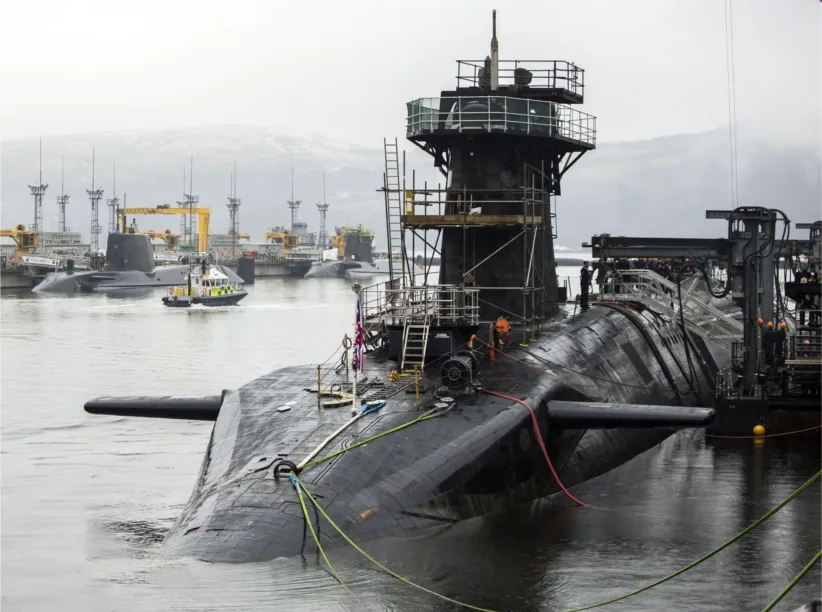The prohibition on receiving transfer or control
As was the case the previous year, in 2024 one state not party—the United Kingdom—engaged in conduct that was not compatible with the Treaty on the Prohibition of Nuclear Weapons’ (TPNW) prohibition on receiving the transfer of or control over nuclear weapons. The United Kingdom leases Trident missiles and imports the other key components integral to its nuclear weapons from the United States.

As discussed in the previous section, the transfers by the United States of the key components for the nuclear arsenal of the United Kingdom are not only prohibited by the TPNW, but are also unlawful under the Treaty on the Non-Proliferation of Nuclear Weapons (NPT). The receipt of the transfers by the United Kingdom as a nuclear-weapon state, however, is not regulated by the NPT. This lacuna is addressed by Article 1(1)(c) of the TPNW, which does not permit any state to receive the transfer or control of nuclear weapons.
As also discussed above, the planned replacement for the United Kingdom’s Holbrooke warhead will be based on the W93 warhead, which is being developed by the United States. If the United Kingdom receives from the United States comprehensive technical information, such as in the form of a design blueprint, and uses it for the development of its new warhead, this will amount to indirect receipt of transfer under the TPNW. In the formal report on the United Kingdom’s nuclear deterrent submitted to Parliament in March 2024, the Secretary of State for Defence informed parliament that the company AWE had begun work on a new warhead that has been designated the A21/Mk7 (also known as Astrea).
For more information, see the 2024 edition of the Nuclear Weapons Ban Monitor.
ARTICLE 1(1)(c) - INTERPRETATION
Each State Party undertakes never under any circumstances to: ‘Receive the transfer of or control over nuclear weapons or other nuclear explosive devices directly or indirectly.’
‣ To ‘receive’ a nuclear weapon or other nuclear explosive device is to take possession or control over it. This broad notion does
not require that ownership also pass to the recipient.
‣ The prohibition on indirect receipt covers accepting the key components of any nuclear weapon or other nuclear explosive
device as well as an assembled version. This extends to transfers made through intermediaries.
‣ Receiving comprehensive technical information for the design of a nuclear warhead or other nuclear explosive device, with the intent of using it to develop a nuclear weapon or other nuclear explosive device, would also constitute indirect receipt of transfer under Article 1(1)(c) of the TPNW.
‣ Article 1(1)(c) of the TPNW follows a similarly worded provision in Article II of the NPT, but the corresponding prohibition in
that latter Treaty applies only to those states that are designated as non-nuclear-weapon states and not also to the five states
designated as nuclear-weapon states.